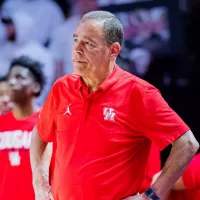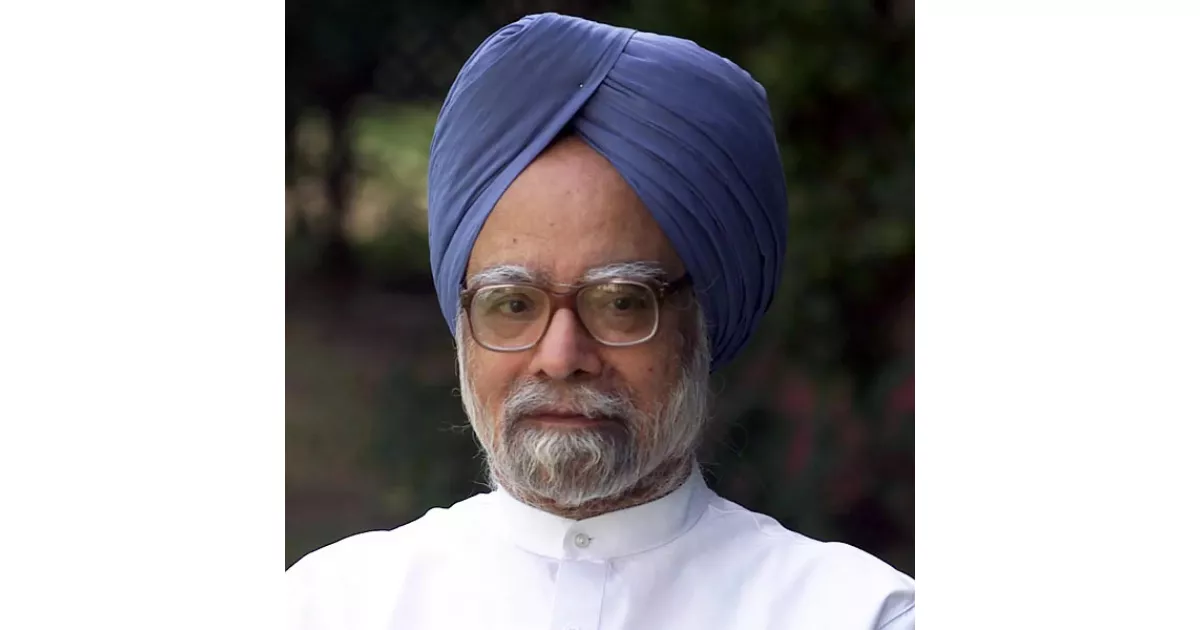Manmohan Singh, a prominent Indian politician, economist, academic, and bureaucrat, held the office of India's 13th prime minister for a decade, from 2004 to 2014. His tenure makes him the fourth longest-serving prime minister in Indian history, following Jawaharlal Nehru, Indira Gandhi, and Narendra Modi. A member of the Indian National Congress party, Singh holds the distinction of being the first Sikh prime minister. Notably, he also achieved the feat of being the first prime minister since Jawaharlal Nehru to secure re-election after completing a full five-year term.
September 1932: Birth of Manmohan Singh
Manmohan Singh was born in September 1932 in Gah, West Punjab (present-day Pakistan).
September 1932: Early life and Family
Manmohan Singh was born on 26 September 1932, and was raised by his paternal grandmother. His early schooling was in Urdu medium.
1947: Migration to India
Singh's family migrated to India from Gah, West Punjab during the partition in 1947.
1952: Earns Bachelor's Degree
Manmohan Singh obtained his bachelor's degree in Economics in 1952.
1954: Earns Master's Degree
Manmohan Singh received his master's degree in Economics in 1954.
1957: Completes Economics Tripos at Cambridge
Manmohan Singh completed his Economics Tripos at the University of Cambridge in 1957.
1957: Begins lecturing at Panjab University
Manmohan Singh started working as a senior lecturer at Panjab University in 1957.
1958: Marriage to Gursharan Kaur
Manmohan Singh married Gursharan Kaur in 1958. They have three daughters: Upinder, Daman, and Amrit Singh.
1959: Becomes Reader in Economics
Manmohan Singh became a reader in economics at Panjab University in 1959.
1962: Nehru's Re-election
Jawaharlal Nehru was re-elected as prime minister in 1962 after serving a full five-year term.
1962: Completes DPhil
Manmohan Singh completed his DPhil in 1962 with a thesis on India's export performance.
1963: Becomes Professor of Economics
Manmohan Singh became a professor of economics at Panjab University in 1963.
1965: Ends Professorship at Panjab University
Manmohan Singh finished his work as Professor at Panjab University in 1965.
1966: Begins Work at UNCTAD
Manmohan Singh started working for UNCTAD (United Nations Conference on Trade and Development) in 1966.
1969: Professor at Delhi School of Economics
Manmohan Singh became a professor of international trade at the Delhi School of Economics in 1969.
1969: Leaves United Nations
Manmohan Singh left his position at the United Nations in 1969.
1969: Ends work at UNCTAD
Manmohan Singh's term at UNCTAD ended in 1969.
1971: Ends term at Delhi School of Economics
Manmohan Singh's time as a professor at the Delhi School of Economics concluded in 1971.
1972: Appointed Chief Economic Advisor
Manmohan Singh became the Chief Economic Advisor in the Ministry of Commerce and Industry in 1972.
1976: Becomes Secretary in Finance Ministry
In 1976, Manmohan Singh was appointed as secretary in the Ministry of Finance.
1976: Ends term as Chief Economic Advisor
Manmohan Singh finished serving as Chief Economic Advisor in 1976.
1980: Works at the Planning Commission
Manmohan Singh began his work with the Planning Commission in 1980.
1983: Son-in-law's Entry into Police Service
Manmohan Singh's son-in-law, Ashok Pattnaik, joined the Indian Police Service in 1983.
1984: Attacked During Anti-Sikh Riots
Manmohan Singh was attacked during the 1984 Anti-Sikh riots. He provided financial assistance and controversially apologized on behalf of the Indian National Congress for the violence.
1985: Becomes Deputy Chairman of Planning Commission
Manmohan Singh took the position of Deputy Chairman of the Planning Commission in 1985.
1985: Ends Term as Reserve Bank Governor/Heads Planning Commission
Manmohan Singh's term as Governor of the Reserve Bank ended, and he took charge as the Head of the Planning Commission in 1985.
1987: Leaves Planning Commission
Manmohan Singh finished his role with the Planning Commission in 1987.
November 1990: Returns to India and becomes Advisor to PM
Manmohan Singh returned to India and became an advisor to the Prime Minister on economic affairs in November 1990.
November 1990: Leaves South Commission
Manmohan Singh's term as secretary general of the South Commission ended in November 1990.
March 1991: Becomes Chairman of University Grants Commission
In March 1991, Manmohan Singh was appointed Chairman of the University Grants Commission.
June 1991: Chosen as Finance Minister
Manmohan Singh was chosen to be the Finance Minister in June 1991.
1991: Abolition of the Licence Raj
As Finance Minister in 1991, Manmohan Singh abolished the Licence Raj, a significant step towards liberalizing the Indian economy.
1991: India's Economic Crisis
In 1991, India faced a significant economic crisis with high deficits and low foreign reserves.
1991: Represents Assam in Rajya Sabha
Manmohan Singh began representing the state of Assam in the Rajya Sabha in 1991.
1991: Appointed Finance Minister
Manmohan Singh was appointed as Finance Minister in 1991 during an economic crisis.
1991: Election to Rajya Sabha
Manmohan Singh was first elected to the Rajya Sabha, the upper house of Parliament, in 1991.
1992: Securities Scandal
A major securities scandal worth US$1.8 billion occurred in 1992, leading to a parliamentary investigation that implicated Singh's ministry.
1993: Resignation Offer and Securities Scandal
In 1993, Manmohan Singh offered his resignation as Finance Minister following a parliamentary investigation into a US$1.8 billion securities scandal in 1992. Prime Minister Rao rejected the resignation.
1995: Re-election to Rajya Sabha
Manmohan Singh was re-elected to the Rajya Sabha in 1995.
1996: Economic Reforms and Election Defeat
In 1996, despite the successful implementation of economic reforms led by Manmohan Singh, including dismantling the License Raj and promoting Foreign Direct Investment, Rao's government was voted out of power due to perceived failures in other areas.
1996: Congress Party performs poorly in election
In 1996, the Congress Party performed poorly in the general election.
1998: Leader of the Opposition
From 1998 to 2004, Manmohan Singh served as the Leader of the Opposition in the Rajya Sabha.
1999: Return of Borrowed Funds
After losing the 1999 Lok Sabha elections, Manmohan Singh promptly repaid a loan he had taken from Khushwant Singh, a testament to his integrity according to the writer.
1999: Lok Sabha Candidacy
In 1999, Manmohan Singh unsuccessfully contested for a Lok Sabha seat from South Delhi.
2001: Re-election to Rajya Sabha
Manmohan Singh was re-elected to the Rajya Sabha in 2001.
2003: Formation of IBSA Dialogue Forum
In 2003, the IBSA Dialogue Forum was created as Manmohan Singh continued developing relations following the "Brasilia Declaration".
May 2004: Appointment as Prime Minister
In May 2004, Manmohan Singh was unexpectedly appointed as the UPA candidate for Prime Minister and subsequently took the oath of office, despite having never won a direct popular election.
2004: Manmohan Singh becomes Prime Minister
Manmohan Singh became the 13th Prime Minister of India in 2004.
2004: Key Legislations and Projects
Manmohan Singh's government implemented several key legislations and projects, including the National Rural Health Mission and the Right to Information Act, in 2004.
2004: End of term as Leader of the Opposition
Manmohan Singh's period as Leader of the Opposition ended in 2004.
July 2005: Initiating Indo-US Civilian Nuclear Agreement
In July 2005, Manmohan Singh visited the United States and began negotiations on the Indo-US civilian nuclear agreement.
2005: Introduction of Value Added Tax
In 2005, the Singh government introduced the value added tax, replacing the sales tax.
2005: Interview with Mark Tully
Manmohan Singh gave an interview to British journalist Mark Tully in 2005.
2005: National Employment Guarantee Act
The National Employment Guarantee Act (MGNREGA) was enacted in 2005 during Manmohan Singh's tenure as Prime Minister.
2005: NREGA and RTI Acts
The National Rural Employment Guarantee Act (NREGA) and the Right to Information Act (RTI) were passed in 2005.
2005: National Rural Health Mission
The National Rural Health Mission (NHRM) was launched in 2005 by Prime Minister Singh and his government, mobilizing a large number of community health workers.
2005: Start of Alleged Coal Block Allocation Losses
The period of alleged losses from the coal block allocation began in 2005.
March 2006: George W. Bush's Visit to India
In March 2006, George W. Bush visited India and a declaration on the Indo-US civilian nuclear agreement was made. The agreement gave India access to American nuclear fuel and technology, subject to IAEA inspections of Indian civil nuclear reactors.
2006: Reservation Policy and Protests
In 2006, the government implemented a policy reserving seats for Other Backward Classes in higher education institutions, leading to widespread protests.
2007: High GDP Growth Rate
In 2007, India achieved its highest GDP growth rate of 9% under Manmohan Singh's leadership as Prime Minister, becoming the second fastest growing major economy globally.
2007: Re-election to Rajya Sabha
Manmohan Singh was re-elected to the Rajya Sabha in 2007.
August 2008: Increased Aid to Afghanistan
During Afghan President Hamid Karzai's visit to India in August 2008, Manmohan Singh increased aid to Afghanistan, strengthening the relationship between the two countries. The aid was for schools, health clinics, infrastructure and defence.
October 2008: Signing of the Indo-US Nuclear Agreement
The Indo-US civilian nuclear agreement was officially signed in October 2008, with Pranab Mukherjee representing India.
2008: Criticism Following Mumbai Attacks
Following the 2008 Mumbai attacks, Manmohan Singh faced criticism for perceived shortcomings in national security.
2008: Mumbai Terror Attacks and NIA Creation
Following the 2008 Mumbai terror attacks, the National Investigation Agency (NIA) was created to address the need for a central counter-terrorism agency.
2008: Impact of Global Inflation
In early 2008, the impact of global inflation continued to affect India.
2008: Opposition to Nuclear Agreement
Manmohan Singh's government faced opposition regarding the civil nuclear agreement with the United States in 2008.
January 2009: Cardiac Bypass Surgery
Manmohan Singh underwent cardiac bypass surgery in January 2009.
February 2009: Establishment of Unique Identification Authority of India
The Unique Identification Authority of India (UIDAI) was established in February 2009 to implement the Multipurpose National Identity Card.
April 2009: General Elections and UPA Victory
India held general elections in April-May 2009, resulting in a victory for the United Progressive Alliance (UPA). Manmohan Singh became the first prime minister since Jawaharlal Nehru in 1962 to be re-elected after a full five-year term.
May 2009: Swearing-in Ceremony
Manmohan Singh was sworn in as the Prime Minister of India for a second term on 22 May 2009 at the Rashtrapati Bhavan.
May 2009: Election Results and Formation of New Government
The election results were declared in May 2009. Manmohan Singh secured a comfortable majority with the support of 322 out of 543 members of the House, including the UPA and external support from several other parties.
July 2009: Right to Education Act
The Right to Education Act (RTE) was introduced in July 2009, making education a fundamental right for children aged 6 to 14.
August 2009: Right to Education Act Enacted
The Right of Children to Free and Compulsory Education Act was enacted in August 2009.
November 2009: State Visit to the White House
In November 2009, Manmohan Singh made the first official state visit to the White House during Barack Obama's presidency, discussing trade and nuclear power.
2009: Improved Economic Condition
By 2009, India's economic situation had substantially improved, with significantly higher foreign exchange reserves.
2009: Kashmir Reconstruction and Terrorism
In 2009, while the Singh government's reconstruction efforts in Kashmir faced renewed challenges from terrorism, there was success in reducing terrorism in Northeast India.
2009: End of Alleged Coal Block Allocation Losses
The CAG report indicated that the alleged losses from coal block allocations ended in 2009.
2009: UPA Returns to Power
The UPA, led by Manmohan Singh, returned to power with an increased mandate in 2009.
April 2010: Right to Education Act Implemented
The Right to Education Act came into force in April 2010, making India one of the many countries where education is a fundamental right.
2010: Ranked Among World's Most Powerful People
In 2010, Manmohan Singh was ranked 18th on the Forbes list of the World's Most Powerful People and praised as one of India's best prime ministers since Nehru.
2010: Recognition as a Revered World Leader
In 2010, Newsweek recognized Manmohan Singh as a respected world leader, and he received the World Statesman Award. Henry Kissinger described him as a statesman with vision, persistence, and integrity.
2010: Corruption Charges
Manmohan Singh's second ministry faced corruption charges related to events like the 2010 Commonwealth Games.
July 2012: Criticized as "Underachiever"
In July 2012, Time magazine's Asia edition labeled Manmohan Singh an "underachiever", criticizing his handling of economic reforms. This sparked defenses from Congress and UPA allies.
2012: CAG Report on Coal Block Allocation
In 2012, the CAG filed a report to the Indian Parliament stating that the nation suffered an estimated loss of Rs 1.85 trillion between 2005 and 2009 due to allocation of coal blocks to private companies without bidding when Manmohan Singh was coal minister.
2012: Ranked 19th on Forbes List
Manmohan Singh's ranking on the Forbes list of the World's Most Powerful People shifted to 19th in 2012.
April 2013: Declined JPC Appearance
Manmohan Singh declined to appear before a Joint Parliamentary Committee (JPC) in April 2013 regarding his alleged involvement in the 2G spectrum allocation case.
May 2013: Chinese Premier Li Keqiang's Visit
Chinese Premier Li Keqiang visited Delhi and Mumbai in May 2013. This visit resulted in three agreements for sister-city partnerships between major Indian and Chinese cities.
August 2013: Land Acquisition Act Passed in Lok Sabha
The Right to Fair Compensation and Transparency in Land Acquisition, Rehabilitation and Resettlement Act, 2013 was passed in the Lok Sabha in August 2013.
September 2013: Land Acquisition Act Passed in Rajya Sabha and Received Presidential Assent
The land acquisition act was passed in the Rajya Sabha and received presidential assent in September 2013.
October 2013: Manmohan Singh's Visit to China
Manmohan Singh paid an official visit to China in October 2013, further solidifying relations between the two countries.
2013: Labeled as "Night Watchman"
In 2013, BJP leader Narendra Modi referred to Manmohan Singh as a "night watchman" and a "puppet" of the Gandhi family.
2013: Ranked 28th on Forbes List
In 2013, Manmohan Singh was ranked 28th on the Forbes list of the World's Most Powerful People.
2013: Documentary Series Features Manmohan Singh
In 2013, the Indian documentary series "Pradhanmantri" aired on ABP News, featuring Manmohan Singh's tenure as Prime Minister.
2013: Re-election to Rajya Sabha
Manmohan Singh was re-elected to the Rajya Sabha in 2013.
January 2014: Land Acquisition Act Comes into Force
The Right to Fair Compensation and Transparency in Land Acquisition Act came into effect in January 2014.
May 2014: End of Premiership and Acting Prime Minister
Manmohan Singh's second term as prime minister officially ended on 17 May 2014. After the BJP-led NDA won the general election, he resigned and served as acting prime minister until Narendra Modi was sworn in on 26 May 2014. He attended Modi's swearing-in ceremony.
2014: Opts out of Prime Ministerial race
Manmohan Singh chose not to run for Prime Minister in the 2014 general election.
2014: End of Prime Ministership
Manmohan Singh's term as Prime Minister ended in 2014.
2014: Memoir Published
Sanjaya Baru's memoir, "The Accidental Prime Minister," was published in 2014.
2016: Son-in-law Appointed CEO of NATGRID
In 2016, Ashok Pattnaik, Manmohan Singh's son-in-law, was appointed CEO of the National Intelligence Grid (NATGRID).
2016: Consideration for Jawaharlal Nehru Chair
In 2016, Manmohan Singh considered taking up the Jawaharlal Nehru Chair at Panjab University, but ultimately didn't assume the position.
2018: Kejriwal Acknowledges Educated PM
In 2018, Arvind Kejriwal remarked that people missed having an educated Prime Minister like Manmohan Singh.
2019: Biopic Released
A Bollywood film, "The Accidental Prime Minister," based on Manmohan Singh's life, was released in 2019.
2019: Represents Rajasthan in Rajya Sabha
Manmohan Singh started representing the state of Rajasthan in the Rajya Sabha in 2019.
May 2020: Hospitalization Due to Medication Reaction
In May 2020, Manmohan Singh was hospitalized at AIIMS, New Delhi due to an adverse reaction to his medication.
2020: Praised by Barack Obama
In his 2020 memoir, former U.S. President Barack Obama described Manmohan Singh as "wise, thoughtful, and scrupulously honest".
October 2021: Hospitalization Due to Weakness and Fever
Manmohan Singh was hospitalized at AIIMS again in October 2021 due to weakness and fever.
2022: Gadkari Acknowledges Liberalization
Union Transport Minister Nitin Gadkari, in 2022, stated that the country was indebted to Manmohan Singh for his liberalization policies.
April 2024: Retirement from Rajya Sabha
Manmohan Singh retired from the Rajya Sabha in April 2024, and was succeeded by Sonia Gandhi.
December 2024: Death of Manmohan Singh
Manmohan Singh passed away in December 2024.
December 2024: Death
On December 26, 2024, Manmohan Singh passed away at the age of 92 after being admitted to AIIMS, New Delhi due to heart complications and age-related issues.
2024: Ends term in Rajya Sabha
Manmohan Singh's term in the Rajya Sabha representing Rajasthan concluded in 2024.
Mentioned in this timeline

Barack Obama the th U S President - was the...

George W Bush the rd U S President - is...

The White House located at Pennsylvania Avenue NW in Washington...
India officially the Republic of India is a South Asian...
China officially the People's Republic of China is an East...
Africa is the second-largest and second-most populous continent comprising of...
Trending

19 minutes ago Kelvin Sampson's Coaching Philosophy and Houston Cougars' SLAM Magazine Cover

19 minutes ago Trace Adkins Hints at Retirement with 2026 Tour Potentially Being His Last

19 minutes ago Urgent search: 3-year-old girl missing in Avondale, Amber Alert issued for safe return.

20 minutes ago Jackie Chan Shines in 'Unexpected Family' and Berlin Film Festival Recognition
20 minutes ago DAZN and Matchroom Boxing Extend Media Rights Deal for Five Years

20 minutes ago Russell Westbrook's wife receives death threats amid sports betting accusations and fan anger.
Popular

Jesse Jackson is an American civil rights activist politician and...

Barack Obama the th U S President - was the...
Randall Adam Fine is an American politician a Republican who...

Ken Paxton is an American politician and lawyer serving as...

Bernie Sanders is a prominent American politician currently serving as...

Michael Joseph Jackson the King of Pop was a highly...
